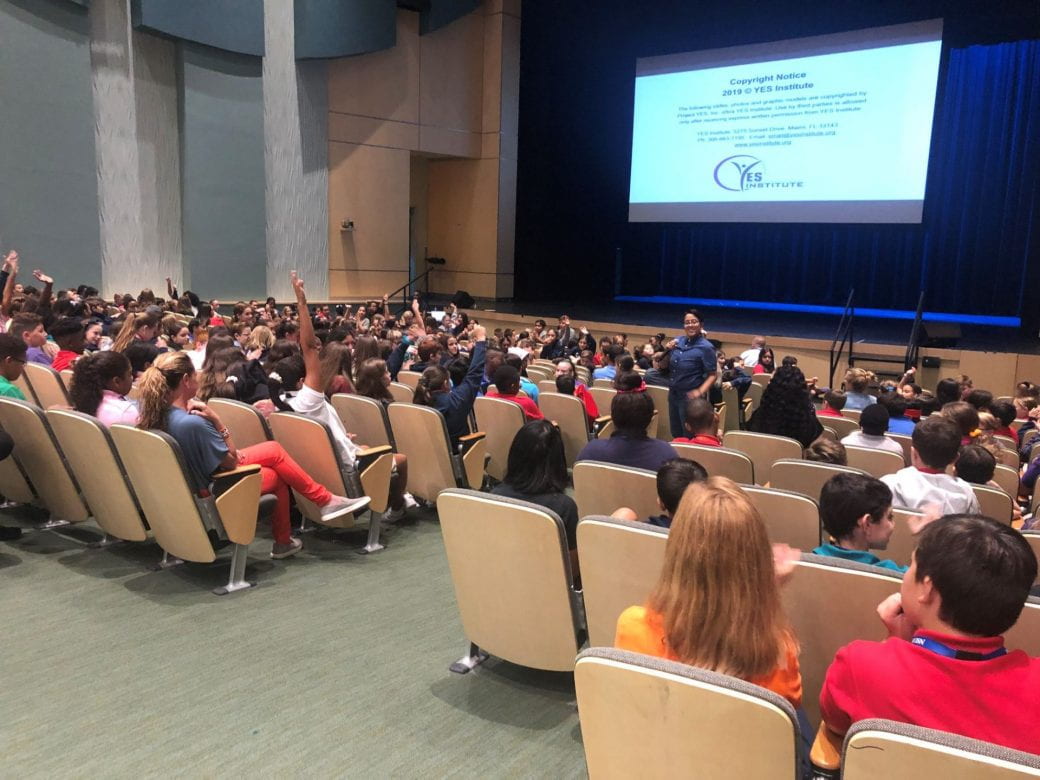In memory of George Floyd, Jacob and Melissa DeMayo made a generous donation to NSU University School to support the Diversity and Inclusion Initiatives Fund. The gift is helping the school develop and implement an anti-racism book club/workshop series for students, faculty, and administration.
“We’re excited that we can start this conversation and really address these issues head on,” said Dr. Robyn Kaiyal, Associate Head of Academic Affairs for NSU University School. “It really gives us outreach to both faculty and students to begin meaningful conversations.”
NSU University School plans a summit on human dignity for faculty every other year. Topics in the past have included gender identity, poverty, and mental health. This year, the focus of the week-long summit was to be on race, but COVID-19 intervened and the event was cancelled.
“Last summer, we had the faculty reading novels and we ran book clubs on introducing the topic of talking about race. The year – until March – was spent preparing for the summit by doing exercises with faculty and students,” said Kaiyal. “When all that fell apart and the protests started, Upper School Director, Jaimie Crawford, and her admin team asked that we look at summer reading for the students and give them another option on race.”
One of the school’s English teachers, Stefani Rubino, leads anti-racist training and agreed to lead students through a three-week workshop to explore how institutional and systemic racism operates and how young people can organize against it. Participating students are required to read Stamped: Racism, Anti-Racism, and You by Jason Reynolds and Ibram X. Kendi.
The idea then was raised to also create a series for faculty with the intention of continuing the work that began in preparation for the human dignity summit. The six-week workshop follows the program created by Layla Saad in her book, Me and White Supremacy. The goal is to lay the foundation for a sustained dialogue about how white supremacy impacts relationships with students, what and how students are taught about the issue, and how to overcome the problem together.
“It’s time to start the dialogue,” said Kaiyal. “You can’t just say that you have a systemic problem. If you have to deal with what White supremacy is and your part in it, you have to start the dialogue and that deep interpersonal reflection. That’s what we want to get out of it – the first step in that reflection. Then we can look at how that affects our teaching and how we interact with our students.”
Kaiyal added that race has been a summer reading topic for the eighth-grade curriculum for the past few years. Students read Dear Martin by Nic Stone, a young adult novel about an African American teenager trying to figure out his place in a world by studying the life of Dr. Martin Luther King, Jr. After reading the book, eighth graders participate in meaningful discussions with their peers and faculty members, said Kaiyal.
“It’s awesome that there’s now reason, purpose and urgency to conduct these difficult conversations, and faculty and students see that,” she added.
“It’s going to be difficult,” she acknowledged. “But we’re up for the challenge.”
In addition to the student and faculty workshops, the gift from Mr. and Mrs. DeMayo enabled three University School staff members to participate in the 2020 National Association of Independent Schools (NAIS) Diversity Leadership Institute (DLI).
The 2020 NAIS Online DLI: A Virtual Leadership Journey was designed to address the many dimensions of diversity and provide participants with the tools needed to lead and manage the shifting intercultural changes schools are currently facing. The event featured workshops, networking, and opportunities to brainstorm, share knowledge, and build accountability with peers. Topics included intercultural conflict; leading and managing diversity initiatives; dynamics of privilege and power; culture competence; and racial, ethnic, and cultural identity development.
Kaiyal said that she hopes to continue providing professional development opportunities for teachers on the topic of anti-racism and how to teach anti-racism. She would also like to train more students to serve as ambassadors for NSU University School at national conferences and bring speakers who can share their experiences and expertise with the student body.
For more information on supporting NSU University School, please contact Director of Development Susanne Marshall at msusanne@nova.edu

